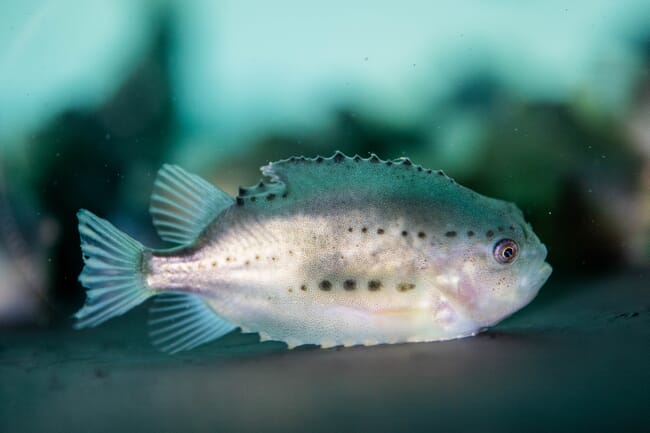
© Elizabeth Fairchild
Lumpfish – a small, aptly named species – are not an uncommon sight at commercial salmon farms, where they are employed as cleaner fish for the removal of salmon lice from their high-value neighbours. However, despite their innocuous appearance, lumpfish can exhibit surprising aggression towards younger members of their cohort, which can significantly decrease the effectiveness of the lice-removal strategy.
In light of this, researchers from the University of New Hampshire (UNH) and the New Hampshire Agricultural Experiment Station recently conducted a study seeking to reduce this behaviour. They found that the aggression shown by mature lumpfish can be greatly reduced by altering light conditions and fish densities at the hatchery stage.
“Lumpfish are crucial in addressing the high demand for cleaner fish in salmonid farming, but their aggressive behaviour, including cannibalism, poses a challenge," said Elizabeth Fairchild, a research associate professor at UNH, in a press release.
"Understanding the factors that exacerbate lumpfish aggression, and providing guidelines for mitigating this behaviour to aquaculturists, are essential for increasing hatchery production and rearing efficiency," she added.
Conducting their research at the UNH’s Coastal Marine Lab, the scientists found that, especially for smaller lumpfish, instances of tail fin nipping as a sign of aggression lessened when the fish had 12 hours of light followed by 12 hours of dark – as opposed to constant light - and when the density of fish was reduced. These management conditions become less influential as lumpfish grow larger, allowing for more flexibility in rearing practices. However, further research is needed to explore the long-term impacts of these conditions and to develop comprehensive guidelines for lumpfish rearing.
“By adopting these recommendations, fish farmers can improve lumpfish hatchery production, reduce juvenile mortality and enhance the sustainability of salmonid farming through effective sea lice management,” concluded Shelby Perry, a researcher working on the project.




